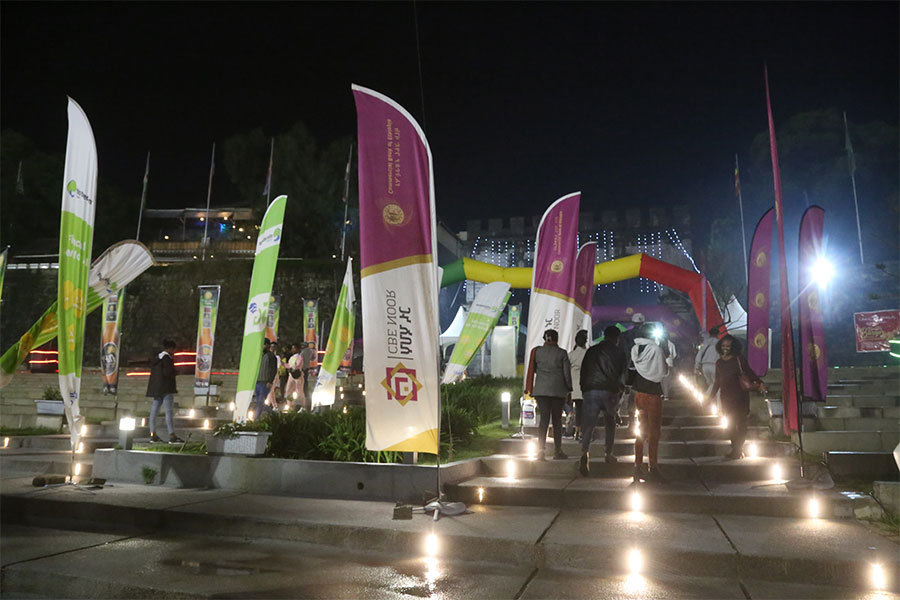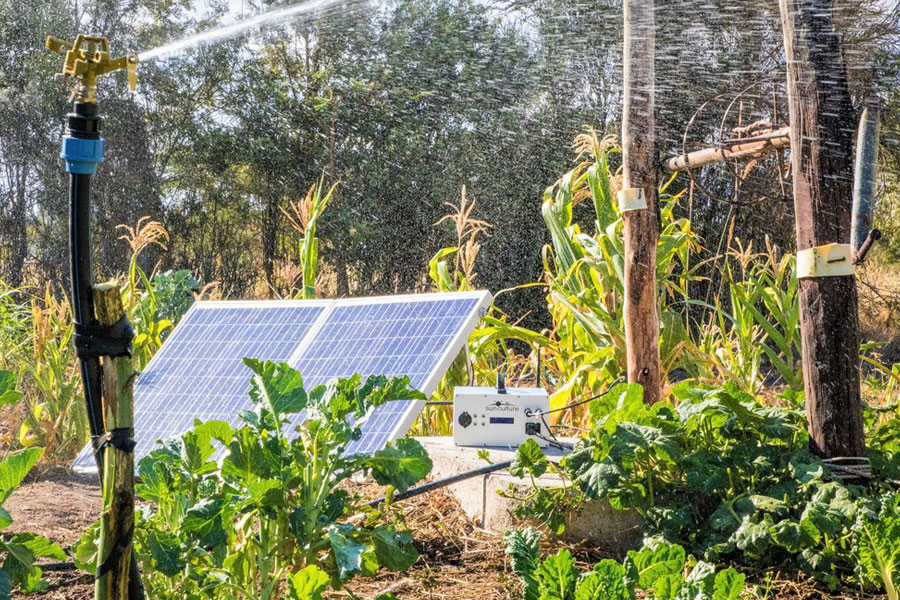
Radar | Oct 12,2024
Jul 17 , 2022
By RAHEL BOGALE ( FORTUNE STAFF WRITER )
Tilahun Tadesse, in charge of the federal public-private partnership (PPP) initiative, is preparing to expand the investment scheme to the health sector. Two weeks ago, he called for an expression of interest from prospective investors to develop an integrated diagnostic centre, providing laboratory, pathology, and imaging services.
Tilahun’s directorate began its search for investors in the health sector after officials at the Ministry of Health (MoH) submitted a study highlighting the need to establish a comprehensive diagnostic centre that can provide all laboratory services in one place.
“The investment requirement for the centre is considerable,” Tilahun told Fortune. “We’re expanding the scheme to the health sector.”
Tilahun had served at the Ministry of Finance (MoF) in various capacities, including as director of bilateral relations, before he was appointed to head the federal PPP directorate three years ago. The office functions under the Ministry, accountable to a board chaired by Finance Minister Ahmed Shide. Comprising 11 members, the Board is mandated to approve projects, including feasibility studies and major amendments to project agreements, as well as approving bids and negotiation outcomes. Yinager Dessie (PhD), governor of the central bank; Fitsum Assefa (PhD), minister of Planning & Development; and Dagmawit Moges, minister of Transport & Logistics, are among the board members.
The Board’s venture into health comes four years after a law that governs public-private partnerships – the first of its kind – was legislated by Parliament. The public-private scheme came onto the scene following a two-year feasibility study conducted with financing from the government, the African Development Bank (AfDB), and the United Kingdom’s Department for International Development (DfID).
Along with the study submitted by the Health Ministry, the board has looked into two proposals put forward by officials in the transport and housing sectors. However, Minister Ahmed and board members nodded to the proposal pitched by Lia Tadesse (MD), minister of Health. People familiar with the matter estimate the diagnostic centre could cost up to 50 million dollars.
Officials hope the public-private scheme can fill a wide investment gap in the health sector, which the government and private investors have thus far failed to bridge. A few international investors had initially shown interest in the centre. Tilahun’s next move will be issuing a request for prequalifications, which will determine whether the investors have the capacity to pull the project past the finish line. Finalists will participate in a bid, and the board will evaluate their offers.
“We’ll move forward even if only one suitable investor shows up,” Tilahun told Fortune.
Once a contract is signed, the Health Ministry will facilitate a plot for the centre’s construction inside the premises of one of the six public hospitals operating under its oversight in Addis Abeba. Places under consideration include Tikur Anbessa (Black Lion) Specialised Hospital and St. Paul’s Hospital Millennium Medical College.
The Board’s officials are considering allowing private developers to take over the management of the centre for 10 years, after which they hand over ownership to the federal government. The Health Ministry’s study show and Tilahun vow that investors can recoup their investment and make a profit in a decade.
“But there’s still a possibility of extending the period further,” he said.
Daniel Melese, director of lab capacity building at the Ethiopian Public Health Institute, observes patients are required to visit two or more health institutions to obtain comprehensive testing.
Most public hospitals offer laboratory services, such as the Black Lion Hospital, where haematology lab services are carried out for 600 tests simultaneously. But this is far from meeting the demand from the 400,000 patients the Hospital admits annually.
Only a handful of public hospitals provide diagnostic imaging services. Health officials say they are struggling with outdated and dilapidated medical equipment that has suffered from deferred maintenance.
“Although there are better laboratories in some private hospitals, they’re not affordable to most,” said Daniel.
Wudassie Diagnostic Centre is a private health facility with laboratory infrastructure operating at four branches. It provides microbiological and biochemical lab services as well as diagnostic imaging services. A CT scan at Wudassie would cost patients 4,200 Br.
Nidan Gebrehiwot, head of laboratory services at Wudassie, argues the fees are fair. Nonetheless, according to Nidan, the Centre provides free testing to up to 30 patients a day who cannot afford to pay.
The public-private venture into the health sector comes following unsuccessful attempts at attracting investment in the energy sector. Three years ago, Tilahun’s office identified seven hydropower projects to be implemented by independent power producers under the scheme. However, most of the projects have collapsed. The list includes the development of two power plants by ACWA Power, a Saudi-based energy developer.
In 2019, ACWA Power agreed to construct the Afari-Dicheto and Somali-Gad projects to have generation capacities of 125mw each, with a planned investment of 300 million dollars. The company abandoned the projects last year.
The absence of mechanisms that allow investors to underrate risk is a factor behind the withdrawal, according to Mesfin Dabi, a senior energy analyst at the Ministry of Water & Energy.
He noted that the challenges by foreign investors to remit profits disincentivise them from taking meaningful steps.
“Political instability plays a role in limiting investment activities, too,” he said.
Abenet Belay, a senior investment consultant at MPE Business & Investment Consultancy, believes the endeavour can only be worthwhile if investors receive strong government commitment to complete constructions quickly.
“This includes availing plots and providing easy access to foreign currency,” he said.
PUBLISHED ON
Jul 17,2022 [ VOL
23 , NO
1159]

Radar | Oct 12,2024

Fortune News | Sep 03,2022

Radar | Jan 09,2024

Fortune News | Apr 03,2023

Fortune News | Jul 13,2024

Dec 22 , 2024 . By TIZITA SHEWAFERAW
Charged with transforming colossal state-owned enterprises into modern and competitiv...

Aug 18 , 2024 . By AKSAH ITALO
Although predictable Yonas Zerihun's job in the ride-hailing service is not immune to...

Jul 28 , 2024 . By TIZITA SHEWAFERAW
Unhabitual, perhaps too many, Samuel Gebreyohannes, 38, used to occasionally enjoy a couple of beers at breakfast. However, he recently swit...

Jul 13 , 2024 . By AKSAH ITALO
Investors who rely on tractors, trucks, and field vehicles for commuting, transporting commodities, and f...

Oct 25 , 2025
The regulatory machinery is on overdrive. In only two years, no fewer than 35 new pro...

Oct 18 , 2025
The political establishment, notably the ruling party and its top brass, has become p...

Oct 11 , 2025
Ladislas Farago, a roving Associated Press (AP) correspondent, arrived in Ethiopia in...

Oct 4 , 2025
Eyob Tekalegn (PhD) had been in the Governor's chair for only weeks when, on Septembe...